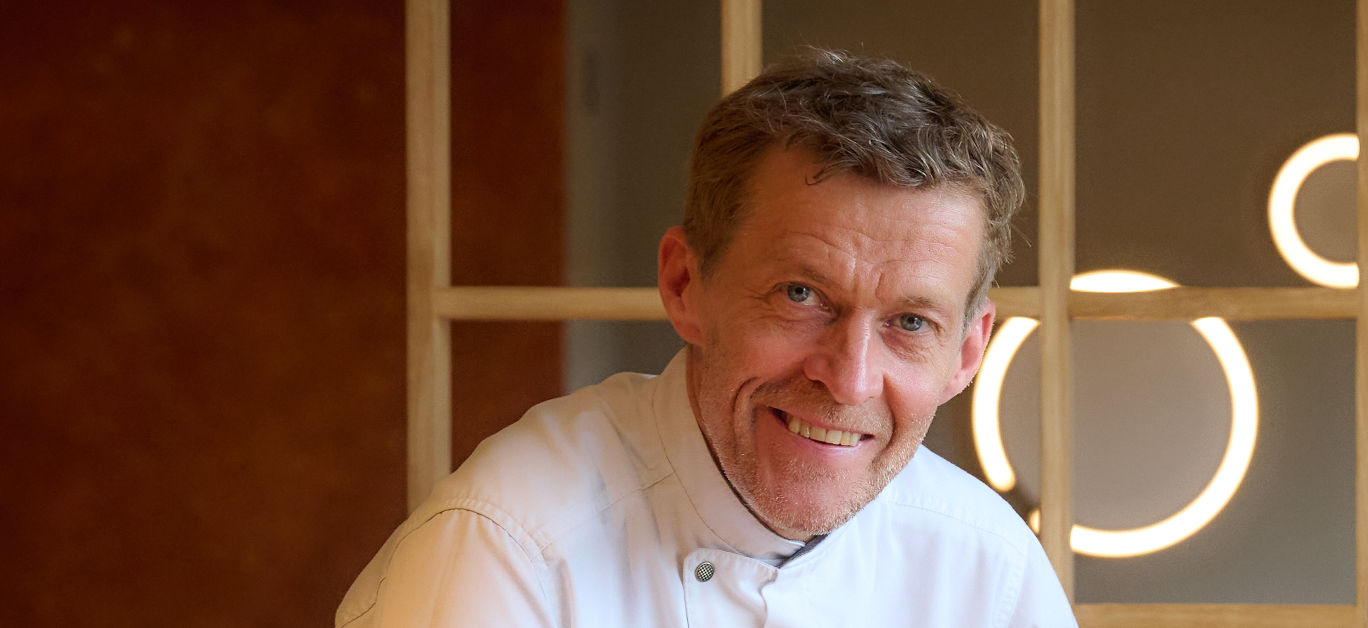When asked what his favourite thing is about the Yorkshire Dales, Michael Wignall, has a clear answer: “The scenery – it’s amazing, unspoiled. It’s also fantastic for cycling. I have two small children and it’s lovely to bring them up here. It’s beautiful where we are, just a really nice place to be.”
Spending time with family is something Wignall values greatly, especially after all the time he’s put into his job. He’s earned a Michelin star (or often, two) at every kitchen he’s led over the past two decades, but his current role as chef patron at The Angel at Hetton has brought work closer to home with his wife Johanna taking up the role of manager.
Tucked into the Yorkshire Dales National Park, The Angel at Hetton is a 15th-century inn with stone features, five-star rooms, and a fabulous food offering led by the Wignalls and their team. Tasting menus reflect the seasons, with the current menu offering the best of the season’s bounty, such as Anjou squab pigeon served with boudin, swede, shiitake mushrooms and barbequed lettuce; and a trio of roasted, tartare, and chutney of carrot with frozen parsley and buttermilk.
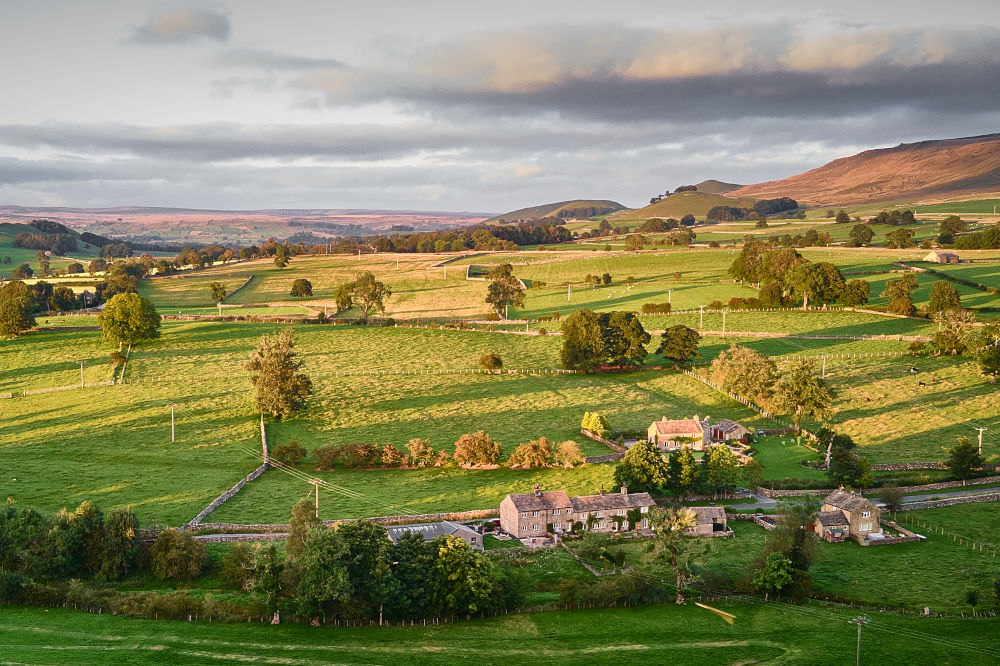
Wignall tells us they have had to pivot from their original vision of what they thought The Angel was going to be, and how this decision was influenced by a certain surprise guest. Four years ago, the team was still serving bar snacks, opting to package The Angel as an upscale-but-accessible pub, when a friend of his announced he’d be bringing a renowned chef over for a meal. “It was Thomas Keller,” says Wignall. “We thought, why are we doing bar snacks?! More and more people were coming for my food, so we thought, let’s change what we’re doing. People were expecting a bit more, so we turned it on its head and I started making the food I’m more used to doing. The night Tom came, we launched the tasting menu!”
Despite earning a star just a year after opening, along with four AA Rosettes and a slew of other awards, Wignall is adamant that he cares more about customer loyalty. “As long as customers are happy and keep coming back, they will follow you. It’s good to have accolades, but they shouldn’t be the be-all and end-all,” he shares. “Since Covid, things have changed. Accolades don’t quite have the same weight they used to; now people are looking for an overall incredible experience. Accolades do bring that, but they have almost become secondary. If all you worry about is more stars, it’s a bit detrimental to the business.”
LLM contributor Ina Yulo Stuve speaks with Wignall and learns how he had his first espresso at age four and how he celebrates the local Yorkshire heritage culture into every corner of The Angel.
When was the first moment you knew you wanted to be a chef?
At a young age I travelled a lot, tasted a lot. My mum was a pâtissier by trade and used to cook all the time. I grew up with proper cooking – no microwaves – and just generally always had an interest in food. My father used to feed me weird and wonderful things when I was young and I had my first espresso when I was four years old in Turkey! When I left school, I didn’t particularly want to pursue a career in cooking, although I was good at home economics, I just didn’t see it as a career. I think living in Spain helped me decide I wanted to be a chef.
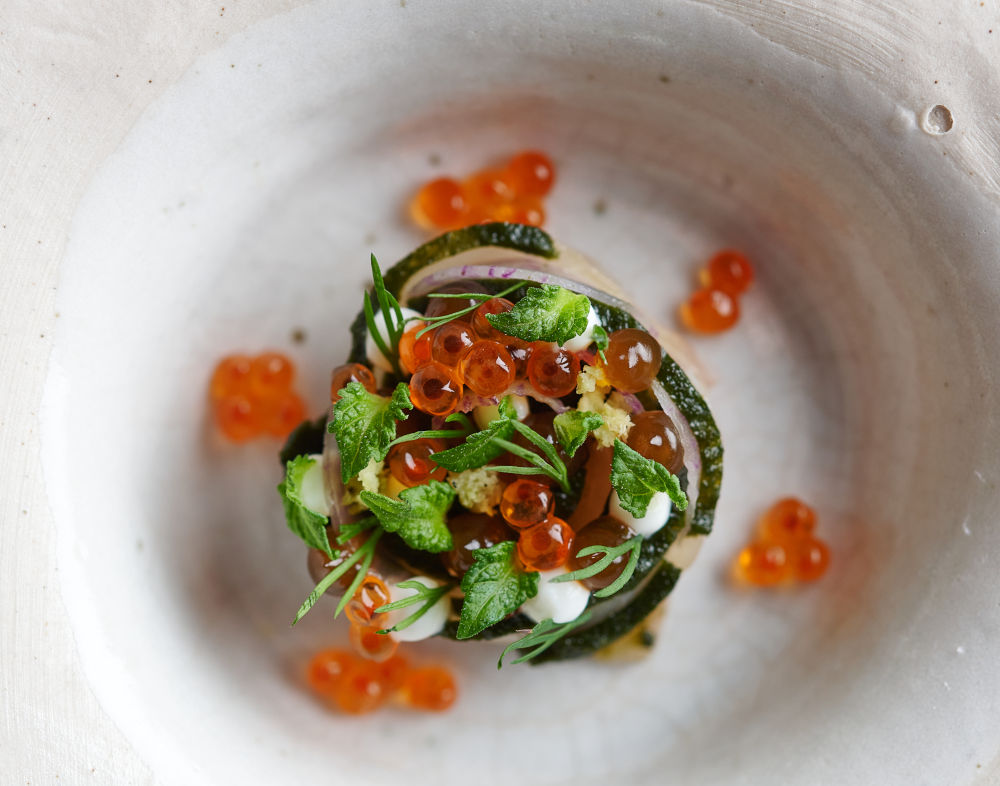
If you had three words to describe your food, what would they be?
Flavourful, crafted, meaningful.
British cooking has come a long way in recent years, and the north has especially had the eyes of the food world on it. How does it feel to be part of this new breed of chefs championing British cuisine?
As chefs, we have a responsibility to shout about our amazing growers and producers, and there is an abundance of both in the north. With everything that has happened in the last few years, people are looking for more home-grown things. We have a duty to search for the best ingredients more locally and more sustainably. I’ve always done this as a chef, but now it’s even more relevant than it used to be.
How have you incorporated the local fare and culture into the experience you deliver for guests?
It was a slow process – very different to what The Angel is now. As a business, we have to be careful about changing things and not just do it overnight. We’ve done it slowly over the years, in different aspects. We use local craftsmen, incorporate copper into the building, such as copper drain pipes, had the woodwork all done by local craftsman, even bespoke wardrobes. It’s a natural area, so very organic, and we’ve done it all with a very minimal and modern feel.
You’ve collected a few stars along throughout your career. What would you say is more challenging: getting or maintaining a star?
A lot of people go out to get stars, it’s their main objective, but it wasn’t mine even from my first star, which was a surprise. I never used to worry about maintaining it, but once you get two, it’s a different ball game. You spend six months celebrating, then the next six months worrying. It does build pressure, but keeps you on your toes.
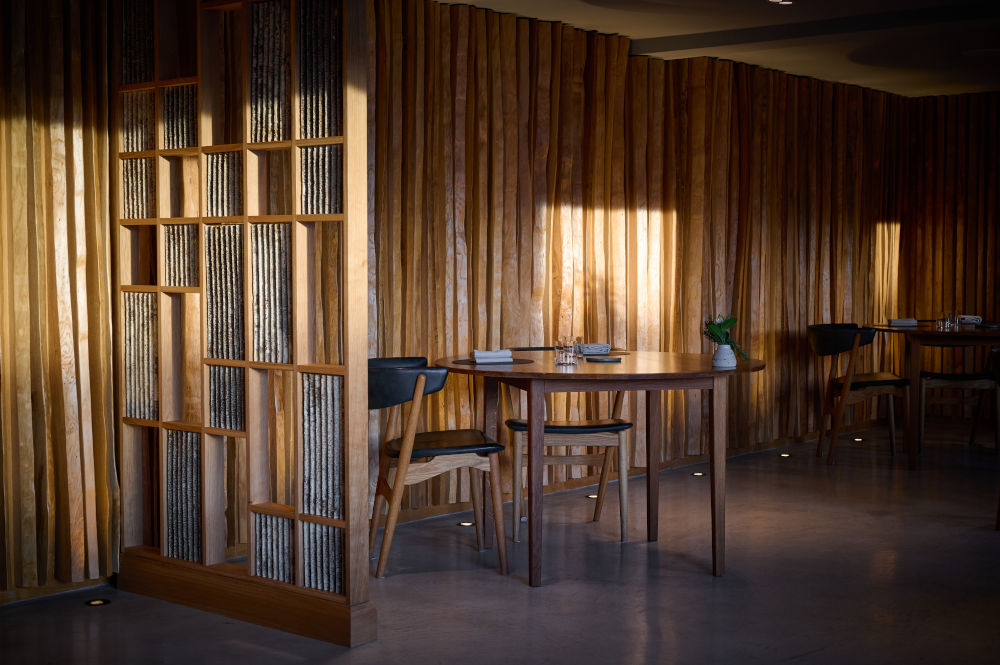
When you first took over The Angel, were you clear about the direction you wanted to take, or did you spend a lot of time brainstorming with your team?
We definitely spent a lot of time brainstorming. Initially we had permission to do what we do, but after a few years things were getting rejected, Covid hit, and it changed our direction. Originally we were going to have two venues: The Angel as an upscale-yet-accessible pub and a smaller and more ambitious restaurant across the road called Cove.
Instead, we brought into The Angel what we wanted to do across the road, so it has changed from our initial plans.
What is your favourite item on the menu right now?
This is a really tricky question as we are in such an amazing period for food.
Coming into game season, and we’re surrounded by it here with grouse and venison, we are so lucky. This time of the year is the best time too as we still have soft berries and stone fruits. I’m a great believer in utilising and respecting the surrounding area. The menu is a brilliant crossover of summer and autumn right now.
What is it about the Far East that has influenced your cooking and treatment of ingredients?
I have always been fascinated with the Far East and Japan since I’ve been tiny. I love the flavours, the ethos behind anything they do, and the respect for the ingredients – they want to do the best they can with them and make them shine. It’s this overall respect which has been missing in cooking for a long time; it’s coming back now, but has been missing for a while. The respect they have for the farmers, who themselves have cared for something for so long, we should too, before we put it on the plate. This is all followed through with the guest experience. I also admire all the ingredients that come from there, travelling so far, and will always have a soft spot for the Far East, which has been an influence and will continue to be for a long, long time.
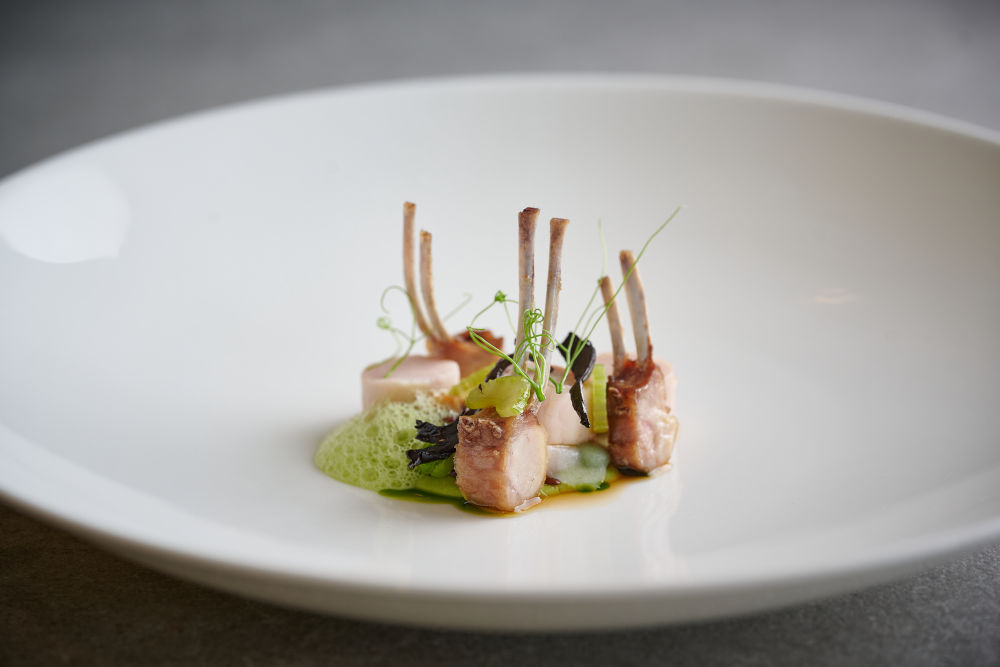
When not at your own restaurant, where can we find you drinking and dining?
Most of the time, at home! I spend so much time at work that in my free time I like to spend it with family. I don’t travel down south as much as I used to, I spend as much time with family as I can. With everything that happened, it has changed people’s mentality. During lockdown, I realised how much I was missing. Dining out is secondary, it is important to see what people are doing so I do dine out, but it’s not the priority. I enjoy cooking very simple things at home, going back to basics.
You have friends over for dinner – what’s on the menu?
A really nice roast with cured meats and cheese. It’s very relaxed, pick as you go along, a lovely roast for the main, and something simple for dessert like berries and homemade ice cream. Just simple things people want to eat at home.
Factbox
The Angel at Hetton
Address: Back Ln, Hetton, Skipton BD23 6LT
Phone: 01756 730263
Website: angelhetton.co.uk
Instagram: instagram.com/angelathetton and instagram.com/michaelwignall












